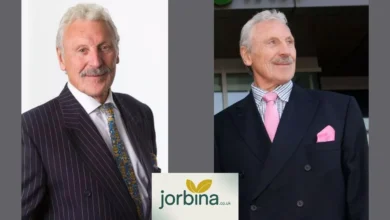Kai Feller’s Guide to Making an Impact

Hook: What happens when you spot a simple problem and decide you can fix it?
Have you ever been frustrated by having to hunt around online for a reliable cleaner or gardener and ended up more confused than when you started? That’s exactly what Kai Feller experienced. And instead of giving in to the hassle, he turned it into a business. This is his story of how an engineering graduate turned a personal annoyance into a global services marketplace and what his journey can teach you.
Beginnings: Who is Kai Feller?
Kai Feller was born in 1991 and grew up in Exeter, England. He went to Cardiff University and graduated with first‑class honours in mechanical engineering. While many of his peers might have aimed for a traditional career path, Kai took a less conventional route: he co‑founded a mobile app called Socialite while at university. He met his future co‑founder, Andrew Michael, through that venture. Kai describes himself as a morning person and has said in interviews that he wakes up early, full of energy. That early discipline became a foundation for what came next.
Spark of an idea: From frustration to business
The real turning point came when Kai found himself looking for local services – a cleaner, a web designer, and a photocopier rental – and realised the process online was broken. Endless search results. No idea which provider was trustworthy. Hours wasted. He and Andrew Michael launched Bark.com in 2015 (co‑founded in 2014) to bridge that gap, to bring local services online in a way that made sense.
Launch and early growth: The “Amazon for services” vision
Bark started from humble beginnings in a shed alongside Andrew’s apartment. Their model originally asked service providers to subscribe for a flat fee for leads. But they found that didn’t scale: some providers got many leads, others got few, and paying the same amount made little sense. So they re‑engineered it: Bark credits, where providers buy credits and use one for each enquiry. That change accelerated growth significantly. By 2019, they had five million users of the platform, and turnover had doubled from £10 m in 2018 to £20 m in 2019. They expanded into the US, Canada, South Africa, and Ireland and had plans for Australia, New Zealand, Europe, and Asia. Kai described Bark’s ambition as becoming the “Amazon of services”.
The leader behind the mission: CEO of Bark
As co‑founder, Kai twisted the strategy and spearheaded growth. According to his LinkedIn profile, he held the position of CEO at Bark and has over 500 connections in his network. Kai is now widely recognised in the marketplace industry, especially for his expertise in building technology‑driven service marketplaces and scaling performance marketing. His leadership style blends discipline (his early‑morning habit) with ambition: launch quickly, learn fast, iterate. That mindset let Bark grow from a simple idea to a global platform in under a decade.
Financials and net worth: What do we know?
Here’s what we can piece together:
- Bark’s revenue in fiscal year 2021 is reported as £52.1 m, with a net income of £6.2 m.
- A 2023 listing shows that Kai’s main company had grown annual sales to more than £71 m.
- Company records show Bark.com Global Limited’s net worth being negative at ‑£736,360 as of the 2019 filing.
So what about Kai Feller’s personal net worth? There is no verified public figure. Some director reports suggest his combined businesses have liabilities exceeding assets and thus a “net worth” figure showing negative values. Because we don’t have audited personal holdings, any exact net worth figure would be speculative.
Bottom line: while the business has grown impressively, publicly available data do not confirm a large personal fortune in the way you might expect from a tech unicorn founder. Approach any number you see with caution.
The “Cubes Kai Feller” query: What does it refer to?

You asked for “Cubes Kai Feller”. I couldn’t locate a reliable reference to “Cubes” in connection with Kai Feller. It may refer to an internal project code name, a nickname, or perhaps a mis‑transcribed term. If you meant something like “Cubes” as in a spatial or scalable business unit within Bark, that isn’t documented publicly. If you can clarify what “Cubes” refers to (perhaps a product, team, or initiative), I can dig further.
Key lessons from Kai Feller’s journey
Solve a pain you personally felt.
Kai’s starting point was frustration. That personal experience drove the idea for Bark. When you see a problem you’ve lived through, the motivation and insight are stronger.
Iterate the business model early.
The shift from flat subscription to pay‑per‑lead credits is a good example. Rather than sticking to a model that didn’t scale, Kai and the team changed it. The lesson: you need flexibility in monetisation if you’re building a marketplace.
Think global early but execute locally.
Bark launched in the UK and then expanded. Their model lent itself to cross‑border scaling. But they still had to tailor customer service and operations by region. Growth mindset with operational rigour.
Lead with purpose and culture.
Kai has emphasised the work hard, play hard culture. Launching from a shed, scaling fast, and building a team culture that supports growth all go together. As a founder, you set the tone.
Be cautious with assumptions about personal wealth
Even though Bark looks successful, publicly available net worth figures for Kai are mixed. This shows how business growth, personal holding structures, debt, liabilities, etc., matter when you try to gauge founder wealth. It’s more complex than headlines.
What comes next for Kai Feller and Bark
Kai stepped down as director of Bark.com Global in October 2024, according to UK filings. That may signal a transition phase for him, perhaps mentoring, investing, or launching a new venture. For Bark, the focus remains on building the services marketplace, entering new geographies, and strengthening the marketplace network effect.
If Kai stays involved, we might expect him to back other founders, share his lessons publicly (he already writes on entrepreneurship), and perhaps explore adjacent sectors beyond pure service‑matching.
Internal Links
The Principles Guiding Gary Channon’s Investments
Kai Feller: Bark.com and the “Amazon for services”
Conclusion: Why Kai Feller matters and what you can take away
Kai Feller’s story reminds us that innovation doesn’t always start with complex tech. Sometimes it starts with a simple frustration and a decision: I’ll fix this myself. He turned that into a business, scaled it globally, and built a team and culture around growth.
If you’re an entrepreneur, a career‑minded person, or simply curious about how modern service marketplaces work, take this away: keep your eyes open for inefficiencies, be willing to rework your model, build culture deliberately, and don’t assume that visible success equals passive wealth.
If you like, I can pull together a timeline of Kai Feller’s major milestones, and we can dig into how Bark.com works today in more detail. Would you like me to do that?



